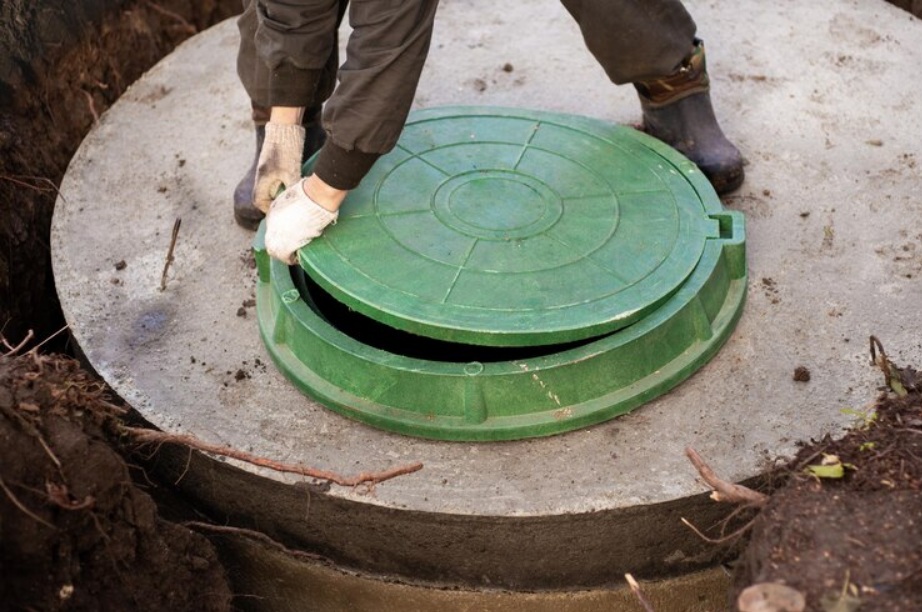Septic tanks play a crucial role in managing waste from homes that are not connected to the main sewage system. They are underground wastewater treatment structures that help in breaking down sewage solidly and effectively. By naturally separating and treating waste, septic tanks significantly reduce the environmental impact while ensuring hygiene and sanitation. However, like all systems, they can experience issues, one of the most common being overflow. When a septic tank overflows, it can lead to a whole host of problems – from unpleasant smells to environmental hazards. This situation often results from the tank being full or blocked, requiring immediate attention to prevent further complications.
Understanding what happens when your septic tank overflows and how to prevent it are crucial steps in maintaining a trouble-free septic system. It’s not just about dealing with immediate problems; it’s about implementing consistent care practices that ensure long-term functionality. By knowing the signs and causes of overflow, you are better equipped to maintain your tank and avoid potential hazards.
Signs Your Septic Tank Is Overflowing
Recognizing early signs of a septic tank overflow can save you from serious issues down the line. Here are some key indicators to watch out for:
– Slow Drains: If your sinks or showers are draining slower than usual, it might be more than just a simple clog.
– Bad Odours: Foul smells around your septic tank or drains are often a giveaway that something is wrong.
– Standing Water: Pooled water around the septic tank or the drain field area, especially when there’s been no recent rain, can indicate an overflow.
– Lush Grass: If the grass around your septic tank is significantly greener or thicker, it could be due to extra fertilization from leaking waste.
These signs should prompt action to investigate further or consult with professionals to address any underlying issues before they escalate.
Common Causes of Septic Tank Overflow
Understanding the roots of septic tank overflow helps in preventing it effectively. Here are some common culprits behind these overflows:
1. Lack of Regular Maintenance: Without routine checks and pump-outs, solid waste can build up over time, reducing the tank’s capacity to function correctly.
2. Excessive Water Usage: Overloading the system with too much water in a short period can cause the tank to overflow, as it puts more pressure on the system than it can normally handle.
3. Non-Biodegradable Items: Flushing or draining materials that don’t break down easily, such as wipes or sanitary products, can block pipes and disrupt the natural treatment process.
4. System and Infrastructure Failures: Cracks or leaks in the tank, broken pipes, or failures in the drainage field can also lead to overflows.
Identifying and addressing these issues either proactively or at the first sign of trouble is key to keeping your septic system running smoothly. Regular maintenance, mindful water use, and being cautious about what goes down the drain are simple yet impactful practices to prevent system overload.
Health and Environmental Risks of Overflow
When a septic tank overflows, it poses significant risks, not just to your property but also to the environment and public health. One of the serious concerns is the contamination of groundwater. If the wastewater seeps through the soil, it can reach and pollute the underground water sources that many communities rely on for drinking water. Once this contamination occurs, it can lead to a cascade of health concerns, potentially spreading harmful bacteria and pathogens.
Moreover, overflow can lead to environmental pollution. Wastewater rich in nutrients can harm local waterways and wildlife. The excess nutrients can cause overgrowth of aquatic plants and algae, which depletes oxygen in water bodies and affects fish and other marine organisms. Furthermore, an overflowing septic system can expose humans and animals to pathogens, risking various diseases and infections. It’s crucial to manage these risks through preventative actions to protect both the environment and public health.
Prevention Tips for Avoiding Septic Tank Overflow
Preventing septic tank overflow is not as complicated as it may seem, and following some simple steps can make all the difference. One of the most effective measures is to schedule regular septic tank pump outs. By having a professional service pump out your tank regularly, you can prevent excessive buildup of solids, ensuring the tank functions properly.
Consider the following preventative tips:
– Monitor Water Usage: Being mindful of how much water is used daily can ease the burden on your septic system. Fix drips and leaks, and try to spread out laundry and dishwasher loads over time rather than doing them all at once.
– Proper Waste Disposal: Avoid flushing non-biodegradable items and chemicals that can disrupt the bacterial balance in the tank.
– Routine Inspections: Regularly check for any signs of wear and tear or leaks in the system and get prompt repairs when needed.
– Educate Your Household: Teaching family members and tenants about the importance of septic system care can foster responsible habits that prevent damage.
By implementing these strategies, you can keep your septic system in top shape and avoid the stress of dealing with an overflow situation.
Keep Your Septic System Running Smoothly
Maintaining a healthy septic system requires regular attention and care. Making practices like routine pump outs and water monitoring part of your household routine can go a long way. Educating those in your home about what should and shouldn’t go down the drain can prevent unnecessary problems and demonstrate a commitment to preserving both the environment and health.
Preventive care is always better than tackling emergencies after they occur. By understanding the importance of your septic system and investing in its upkeep, you’re ensuring both a clean environment and peace of mind for the future. Remember, proper maintenance and awareness can keep your system running smoothly and efficiently for years to come.
To keep your septic system in top condition and make sure you don’t run into issues down the line, consider scheduling regular septic tank pump outs. With WASTECO’s reliable services, you can enjoy peace of mind knowing your wastewater treatment is in safe hands. Discover more about how we can assist with protecting your property and the environment through efficient septic management.





